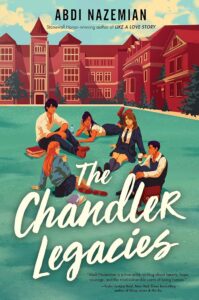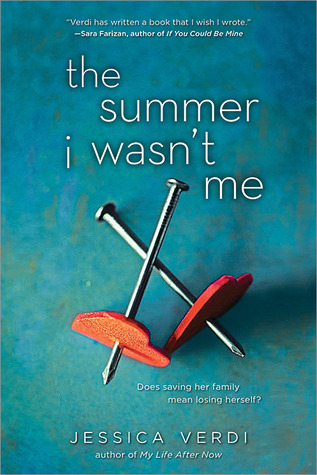At a private boarding school, five writers are selected for the elite writing group called the Circle: Beth, the “townie” who feels very much out of place; Sarah, Beth’s former roommate who carries her own secrets about the school; Spence, who struggles to carve out her own identity while also benefiting from the privilege of her famous parents; Freddy, the star athlete who isn’t sure if he can do anything else; and Ramin, an international transfer student who left his previous school after being outed and finds that Chandler has its own hazing traditions. Though they’re from such different backgrounds, the Circle brings them together in ways that they never could have expected.
Based on Nazemian’s own experiences at a private boarding school in the 90s, it’s at times a brutal read as it navigates the ways abusers remain in positions of power. I appreciated, though, how this is a dark academia interested in the actual horror of places like Chandler. A lot of books in this genre involve magic or overexaggerated cults with a collection of oddball characters that can stretch the limits of believability. These can be fun in their own ways, but here the true villains are the all-too-familiar authorities plagued by apathy and cover-ups that allow the abuses to continue festering. Nazemian portrays these horrific events with such care and sensitivity while also not turning away from the reality of their impact—a hard balance to strike, but this story manages to do both.
That’s not to say that this book is all doom and gloom. Where Nazemian really shines is in the ways that the characters grow to love and support one another. A lot is packed in here, and yet each of the five characters, with their own POV chapters, felt distinct and real. They were at times annoying, at times charming, at times naïve, and above all else, they felt like actual teens navigating their lives and how they fit in.
The book falters a bit towards the end as certain looming secrets and problems are wrapped up sooner than expected, but the rest of the book’s strengths come through enough for me to buy into the ending. For fans of The Breakfast Club or Dead Poets Society who wanted to see more of themselves in those movies, this book is a great addition to the coming-of-age genre.
Trigger warnings: violence, homophobia, racism, bullying, references to suicide, references to self-harm, sexual assault




